Discussion on the Waqf (Amendment) Act, 2013: Impact on Human Welfare
January 07, 2014 at IOS Conference Room, New Delhi
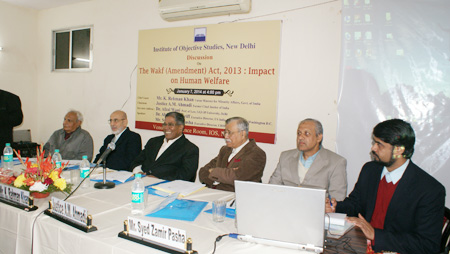
The Institute of Objective Studies (IOS), organised a discussion on the “Waqf (Amendment) Act, 2013: Impact on Human Welfare”, at the IOS Conference hall here on January 7, 2014. While the former Chief Justice of India, Justice A.M. Ahmadi presided over the meet, Union Minister for Minority Affairs, Mr. K. Rahman Khan, attended it as a chief guest.
Addressing the gathering at the seminar, the minister described the Waqf Amendment Act as “perfect” as it passed through various stages before being finally okayed by Parliament. He said that a number of suggestions made by the Joint Parliamentary Committee (JPC) and Muslim institutions, as also the religious leaders of the community, had been incorporated in the Waqf Act.
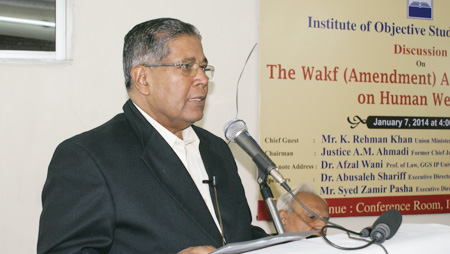
Still, grey areas have to be identified in order to make it more effective, he said. The Consultation process was still on, and the areas left out would be taken up later. Referring to the non-cooperation of state governments in the implementation of the provisions of the Waqf law, the Minister traced the genesis of the JPC.
He noted that taking a cue from the West Bengal Wakf Board, the first JPC was appointed in 1977. He maintained that before drafting the Waqf legislation he received the JPC report twice along with the suggestions from the institutions to address their concerns. He admitted that several areas had been left untouched as the proposed law hit a roadblock due to technical objections.
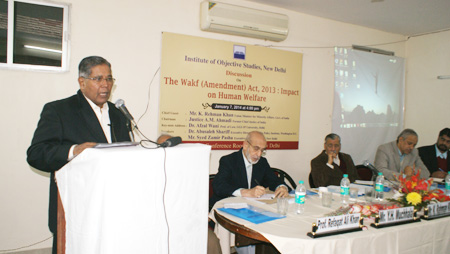
Highlighting some of the provisions of the amended act, he said that the sale and mortgage of Waqf properties had been banned under the new law. This could, however, be done under exceptional circumstances. Waqf property could now be given on lease for a maximum period of 30 years and the term of the lease cannot be extended beyond that period. Similarly, the term of the Waqf Board had been enhanced and it had become a multi-member panel. The Waqf Board will now have three members instead of one.
While one member will be from the judiciary, another will represent the administration. Under the amended act, the Central Wakf Council has been empowered to direct, advise, suggest and even interfere with the affairs of the state Waqf Boards. This is aimed at making the Waqf Boards more accountable. The amended Waqf Act confers more powers on the Central government to make laws for Waqf property in relation to leasing.
Mr. K. Rahman Khan made a special mention of the late Prime Minister Indira Gandhi whose interest in Waqf matters paved the way for the issuance of guidelines for the management of Waqf properties and the superintendence of Waqf Boards. He said a Waqf Tribunal had been set up to decide whether the disputed property was a Waqf property or otherwise.
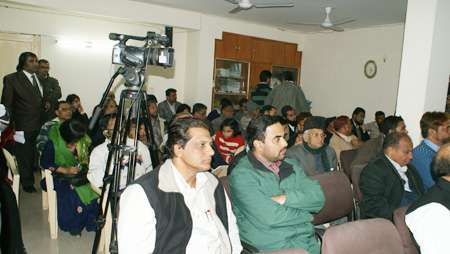
He pointed out that the definition of the encroacher of Waqf property had been widened, adding that the tribunal had been given more teeth to deal with cases of encroachment. He said that the termination of Waqf property without proper deed would now be treated as an encroachment which had been made a cognizable offence punishable with imprisonment that might extend up to two years.
With a view to putting Waqf property to better and proper use, including its development, the National Waqf Development Corporation has been set up with an initial capital of Rs. 400 crore. He informed that the Corporation would become functional very soon.
Referring to the generation of revenue through Waqf properties, the Minister said that currently it yielded Rs. 6,000 crore annually. This income could go up ten times if the rental of Waqf property was increased. Keeping this in mind, it had now been provided that the rental of Waqf property would be based on market value. Waqf property would be given on rent to the highest bidder.
Noted lawyer from Mumbai, Mr. Yusuf Hatim Muchhala in his speech said that there was a difference of opinion between the existing law and the Shariah on the powers of the mutawallis. He opined that the Shariah was very clear on the powers of mutawallis to sell the property. He cited the case of Maharashtra, particularly Mumbai, where the development of Waqf properties was held up due to legal niceties. The Shariah says Waqf property cannot be sold other than for the purpose for which it was created. He urged the Minister to accommodate those who were in occupation of the Waqf properties in Mumbai.
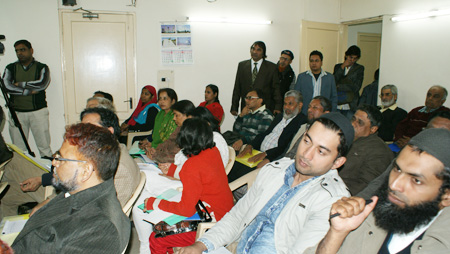
Justice A.M. Ahmadi, in his presidential speech, stated that much had been done in this regard, but still there was need to do more.
He said that the process of consultation for plugging the loopholes in the Waqf law would continue.
Those who expressed their views on the occasion included Prof. Refaqat Ali Khan, Vice-Chairman of the IOS and Dr. Afzal Wani, Prof. of Law, GGS, IP University, New Delhi, Dr. Abusaleh Shariff, Executive Director, US India Policy Institute, Washington, Syed Zamir Pasha, Executive Director, CRDDP, New Delhi, Khalid Shaikh, Advocate, Gujarat High Court, Rauf Khan, Secretary, Al-Huda Welfare Trust, Bangalore, Honorary Secretary of Al-Ameen Educational Society, Bangalore, J. Shafi-Ullah, Dr. Mohd. Ilyas from Al-Ameen College, Mrs. Malika Siddiqui and Afsha Siddiqui from Helping Hand Suffering Heart, Benazir Beg from Raza Education, Bangalore, Amir Idrisi, President, Mumbai Association of Muslim Professionals, Prof. S. Nazaar Ahmad from Bangalore, Dubai-based businessman, Aleem-Uddin Mohammad, M. Syed Umar, Advocate, I.T. Professional, Mohd. Rafiq, members of a delegation from USA and several prominent citizens of the capital. Mushtaque Ahmed Siddiqui, Advocate, Supreme Court, conducted the proceedings.
A short documentary film on the Silver Jubilee Celebrations of the IOS was shown. And another film titled ‘Walk Through’ of the proposed International Objective University was also screened on the occasion.
Go Back